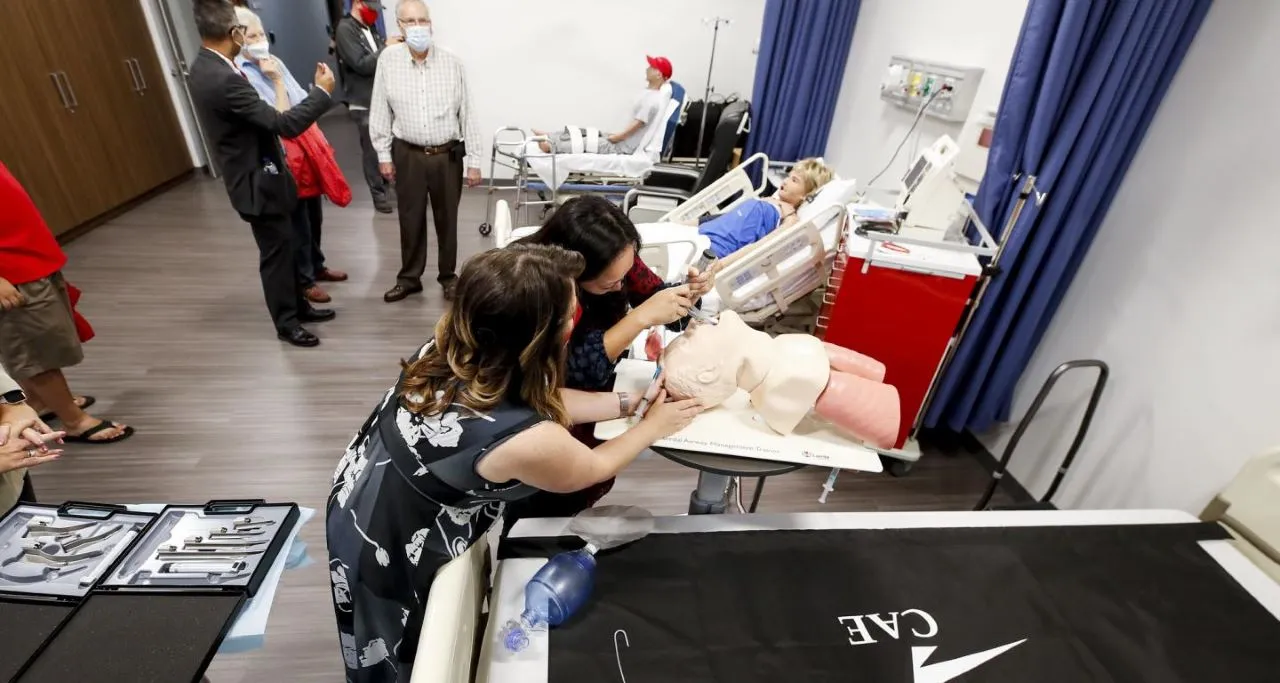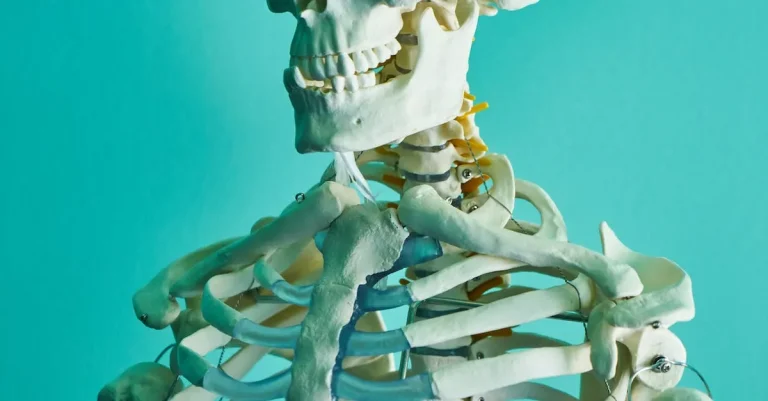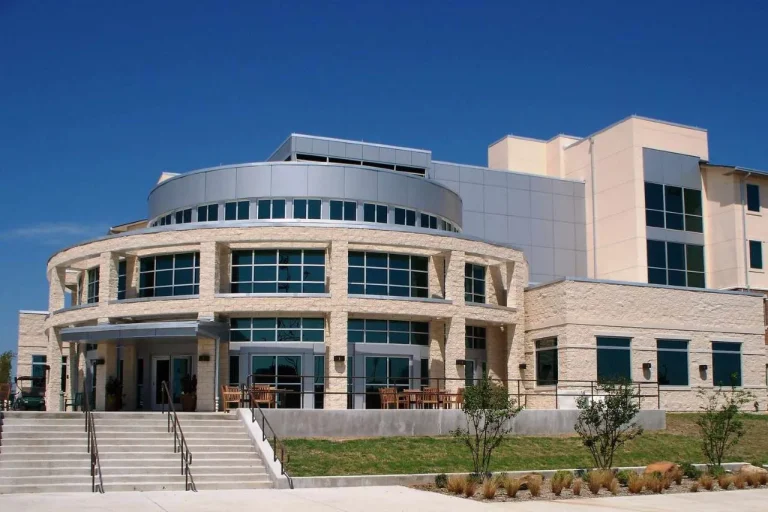Is Health Science A Hard Major? A Comprehensive Look
Choosing a college major is an important decision that will set the course for your career. If you’re considering majoring in health science, you probably want to know – is health science a hard major?
There’s no simple yes or no answer, but this comprehensive guide will walk you through everything you need to know about the challenges and rewards of pursuing a health science degree.
If you’re short on time, here’s a quick answer: Health science is considered a moderately difficult major due to the science, math, and analytical skills required. However, it prepares students for rewarding healthcare careers and offers flexible career paths.
The key is choosing the right program and being prepared for the coursework.
What is Health Science?
Health Science is a multidisciplinary field that focuses on the application of science and technology to improve healthcare delivery, prevent diseases, and promote overall well-being. It encompasses a wide range of disciplines, including biology, chemistry, psychology, epidemiology, and public health.
Health Science professionals play a crucial role in the healthcare industry, conducting research, analyzing data, and developing innovative solutions to improve patient care.
Definition and overview of the field
Health Science is a broad field that encompasses various disciplines and professions. It involves the study of human biology, anatomy, physiology, and the social and behavioral aspects of health. Professionals in this field work in hospitals, research laboratories, public health agencies, and other healthcare settings to improve health outcomes and quality of life for individuals and communities.
Common majors and concentrations
There are several majors and concentrations available within the field of Health Science. Some common majors include Health Promotion, Health Informatics, Healthcare Administration, and Biomedical Sciences.
These majors provide students with a solid foundation in the core principles of health science and prepare them for various career paths in healthcare.
Typical courses and concepts
Students pursuing a degree in Health Science can expect to take a range of courses that cover topics such as anatomy and physiology, epidemiology, healthcare ethics, research methods, and healthcare policy.
These courses provide students with a comprehensive understanding of the human body, healthcare systems, and the social determinants of health.
Certifications and licensure
In addition to obtaining a degree in Health Science, professionals in this field may also pursue certifications and licensure to enhance their knowledge and skills. Some common certifications include Certified Health Education Specialist (CHES), Certified Clinical Research Professional (CCRP), and Certified Healthcare Environmental Services Professional (CHESP).
These certifications demonstrate a commitment to professional development and can enhance career prospects in the field of Health Science.
For more information on Health Science and its various disciplines, you can visit https://www.nih.gov/health-information or https://www.cdc.gov/.
Is Health Science Math Intensive?
When considering a major in Health Science, one question that often arises is whether it is math intensive. While Health Science does involve some mathematical concepts and skills, it is not typically considered a math intensive major like Engineering or Mathematics.
However, it is important to have a solid foundation in math to succeed in this field.
Math requirements
Health Science programs usually have specific math requirements that students must fulfill. These requirements may vary from one institution to another, but typically include courses such as statistics, algebra, and calculus.
These courses are designed to provide students with the mathematical knowledge and skills necessary to analyze data, understand research studies, and make informed decisions in healthcare settings.
Key math concepts and skills needed
While the math requirements may seem daunting to some students, it is important to remember that the math concepts and skills needed in Health Science are practical and applicable to real-world situations.
Some key concepts include understanding and interpreting graphs and charts, calculating dosage and medication administration, analyzing and interpreting research data, and understanding statistical measures used in healthcare research.
Tips for succeeding with math in health science
For those concerned about their math abilities, there are several tips that can help them succeed in Health Science courses:
- Take advantage of resources: Many universities offer tutoring services or math centers where students can get help with math concepts and problem-solving techniques.
- Practice regularly: Like any skill, math requires practice. Students should set aside regular study time to review concepts, solve problems, and reinforce their understanding.
- Seek help when needed: If a student is struggling with a specific math concept, it is important to seek help from professors, classmates, or online resources. There are numerous websites and videos available that can provide additional explanations and examples.
- Apply math to real-world scenarios: By understanding how math is used in healthcare settings, students can see the relevance of the concepts and develop a deeper understanding.
It is important to note that while math is a component of Health Science, it is not the sole focus of the major. Health Science encompasses a wide range of subjects, including biology, anatomy, physiology, and healthcare ethics, among others.
Therefore, students who may be hesitant about pursuing Health Science due to math should consider the broader scope of the major and the rewarding career opportunities it can offer.
How Much Science is Involved?
Health Science is a major that requires a strong foundation in scientific knowledge and skills. Students pursuing this major can expect to encounter a significant amount of science throughout their coursework.
From prerequisites to core courses, understanding human biology, and developing laboratory skills, science is a fundamental component of a Health Science degree.
Science prerequisites
Prior to diving into the core Health Science curriculum, students are typically required to complete science prerequisites. These may include courses in biology, chemistry, physics, and mathematics. These prerequisites lay the groundwork for more advanced scientific concepts that students will encounter in their core courses.
Core science courses
Once students have completed their prerequisites, they will delve into core science courses specific to Health Science. These courses cover a wide range of topics, such as anatomy and physiology, microbiology, pharmacology, and biochemistry.
These courses build upon the foundational knowledge gained in the prerequisites and provide a deeper understanding of the scientific principles that underpin health and wellness.
Understanding human biology
In addition to general scientific knowledge, Health Science majors need a thorough understanding of human biology. This includes studying the structure and function of the human body, as well as the various systems that work together to maintain health.
Courses in human anatomy, physiology, and genetics are crucial for students to develop this understanding and apply it to real-world situations.
Developing lab skills
Health Science majors also need to develop strong laboratory skills. This involves hands-on experience in conducting experiments, collecting data, analyzing results, and drawing conclusions. Lab courses give students the opportunity to apply theoretical concepts learned in the classroom to practical settings.
These skills are essential for future healthcare professionals who may be involved in research, diagnostics, or clinical practice.
What Analytical Skills are Needed?
Health Science is a challenging major that requires a strong set of analytical skills. These skills are essential for conducting research, evaluating health statistics, problem-solving, and paying attention to detail.
Research methods and data analysis
One of the key analytical skills needed in Health Science is proficiency in research methods and data analysis. This involves collecting and interpreting data, conducting experiments, and analyzing results.
Health Science majors learn how to use statistical software and other tools to analyze data and draw meaningful conclusions. This skill is crucial for conducting research studies and contributing to the advancement of the field.
Evaluating health statistics
Evaluating health statistics is another important skill for Health Science majors. They need to be able to critically analyze and interpret data from various sources, such as research studies, surveys, and public health reports.
By understanding how to evaluate the quality and reliability of health statistics, Health Science majors can make informed decisions and recommendations based on evidence.
Problem-solving abilities
Health Science majors need strong problem-solving abilities to address complex health issues. They must be able to analyze a problem, identify potential solutions, and evaluate the effectiveness of different interventions.
This skill is particularly valuable in fields such as epidemiology, where understanding the causes and patterns of diseases requires a systematic and analytical approach.
Attention to detail
Attention to detail is a crucial skill for Health Science majors, as it is essential for accurately collecting and analyzing data. Small errors or oversights can lead to flawed conclusions and unreliable results.
Health Science majors learn how to carefully collect and record data, ensuring that it is accurate and complete. This attention to detail is vital for maintaining the integrity of research studies and contributing to the overall body of knowledge in the field.
For more information on analytical skills in Health Science, you can visit reputable websites such as the National Institutes of Health’s (NIH) official website at www.nih.gov.
What’s the Time Commitment?
Health Science is a challenging major that requires a significant time commitment. Students pursuing this field can expect a heavy workload and a demanding schedule. Let’s take a closer look at the time commitment involved in studying Health Science.
Typical course load and assignments
Health Science majors usually have a rigorous course load that includes a mix of theoretical coursework, practical labs, and clinical experiences. Students can expect to take a variety of science-based classes such as biology, chemistry, anatomy, and physiology.
These courses often have associated assignments, including lab reports, research papers, and exams. The workload can be intense, but it is necessary to develop a strong foundation in the field.
Managing a science-heavy schedule
Managing a science-heavy schedule requires effective time management skills. Health Science majors need to allocate time for attending lectures, studying, completing assignments, and participating in extracurricular activities or part-time jobs.
It’s important to create a study schedule and stick to it to ensure all coursework is completed on time. Additionally, staying organized and prioritizing tasks can help alleviate some of the stress associated with a demanding schedule.
Internship and fieldwork requirements
Health Science programs often have internship and fieldwork requirements, which further add to the time commitment. These practical experiences provide students with real-world exposure and hands-on training.
Internships and fieldwork can range from a few weeks to several months, depending on the program’s requirements. While these experiences can be time-consuming, they are invaluable in preparing students for their future careers in healthcare.
Studying and preparation needed
Studying and preparation are essential components of success in Health Science. Students must dedicate ample time to review lecture notes, complete readings, and engage in active studying techniques. This may involve creating flashcards, joining study groups, or utilizing online resources.
By developing effective study habits early on, students can better manage their time and excel in their courses.
What Are the Career Prospects?
Health science offers a wide range of career prospects for individuals passionate about making a difference in the field of healthcare. Whether you choose to work directly with patients or behind the scenes, there are numerous opportunities to explore.
Here are some key aspects of the career prospects in health science:
In-demand healthcare occupations
The healthcare industry is experiencing a high demand for professionals with expertise in health science. Occupations such as registered nurses, physician assistants, medical laboratory technologists, and physical therapists are in high demand.
These professionals play a crucial role in providing quality patient care and are essential for the smooth functioning of healthcare facilities.
Job outlook and salary potentials
The job outlook for health science majors is quite promising. According to the Bureau of Labor Statistics, employment in healthcare occupations is projected to grow much faster than the average for all occupations.
This growth is attributed to factors such as an aging population, increased chronic conditions, and advancements in medical technology.
In terms of salary potentials, health science professionals often earn competitive wages. For example, the median annual wage for registered nurses was $75,330 as of May 2020. However, it is important to note that salaries may vary depending on factors such as experience, location, and specialization.
Variety of work settings
One of the great advantages of a career in health science is the variety of work settings available. Health science professionals can find employment in hospitals, clinics, research laboratories, public health agencies, educational institutions, and even in the pharmaceutical industry.
This variety allows individuals to choose a work environment that aligns with their interests and goals.
Opportunities for advancement
Health science majors have ample opportunities for career advancement. With further education and experience, individuals can pursue leadership roles, research positions, or specialize in specific areas of healthcare.
Advanced degrees such as a Master’s or a Doctorate can open doors to higher-level positions and increased responsibilities.
Conclusion
While health science includes challenging coursework, it opens doors to fulfilling and growing career fields in healthcare. With proper planning and dedication, a health science degree is an excellent investment for students interested in working to improve health and save lives.
Do your research and be ready to work hard, and a health science major will equip you with the knowledge and qualifications to make a real difference.
Check in with your advisor to map out a study plan, and don’t be afraid to ask for help. With passion for helping people and commitment to learning the material, a health science major is very achievable and rewarding.







